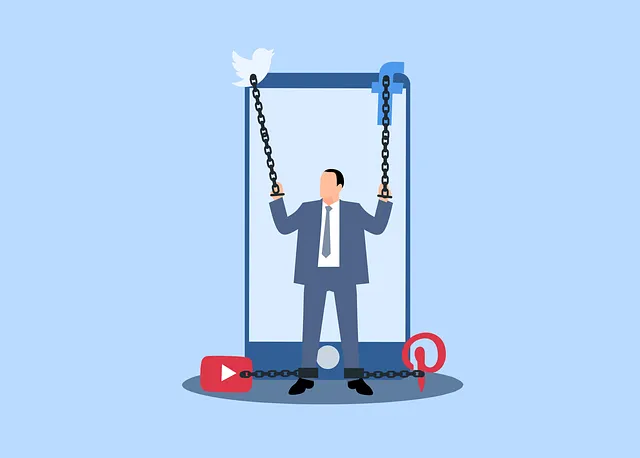Greenwood Village Kaiser Permanente behavioral health services tackle healthcare provider burnout through multi-faceted strategies, including communication training, conflict resolution, emotional regulation techniques, and self-care programs. They prioritize open dialogue, active listening, and constructive feedback to create a supportive work environment. By offering specialized mental well-being support, stress management tools, and mindfulness practices, the organization enhances job satisfaction, resilience, and long-term career excellence while promoting cultural competency and improved patient outcomes.
Healthcare provider burnout is a growing concern, impacting not only individual well-being but also patient outcomes. This article explores effective prevention strategies, focusing on practices implemented at Greenwood Village Kaiser Permanente. We delve into the critical role of behavioral health services in addressing this issue, alongside creating supportive work environments and fostering open communication. By examining these approaches, we aim to provide insights that can be applied to mitigate burnout among healthcare providers, enhancing sustainability and patient care at organizations like Greenwood Village Kaiser Permanente.
- Understanding Burnout Among Healthcare Providers: A Growing Concern
- The Role of Behavioral Health Services in Prevention
- Creating a Supportive Work Environment at Greenwood Village Kaiser Permanente
- Implementing Self-Care Practices for Long-Term Sustainability
- Fostering a Culture of Open Communication and Collaboration
Understanding Burnout Among Healthcare Providers: A Growing Concern

Burnout among healthcare providers is a growing concern, impacting not only individual well-being but also patient care and organizational productivity. This phenomenon, characterized by emotional exhaustion, depersonalization, and reduced personal accomplishment, often arises from high workload pressures, complex decision-making processes, and challenging interpersonal dynamics within the medical field. At Greenwood Village Kaiser Permanente behavioral health services, addressing this issue is a top priority to ensure staff resilience and optimal patient outcomes.
Effective communication strategies and conflict resolution techniques are pivotal in mitigating burnout risks. Promoting open dialogue, active listening, and constructive feedback mechanisms among healthcare teams fosters a supportive work environment. Additionally, teaching emotional regulation skills enables providers to manage stress, maintain compassion, and build resilience against the daily demands of their professions.
The Role of Behavioral Health Services in Prevention

At Greenwood Village Kaiser Permanente, behavioral health services play a pivotal role in preventing healthcare provider burnout. These services offer specialized support for mental well-being, incorporating evidence-based practices such as conflict resolution techniques and mindfulness meditation. By integrating these strategies into daily routines, healthcare professionals can enhance their ability to manage stress and improve resilience against burnout.
Furthermore, behavioral health services contribute to overall cultural competency among healthcare providers. Through comprehensive training programs, medical staff gain insights into diverse patient populations, enabling them to deliver more personalized and effective care. This enhanced cultural competence not only improves patient outcomes but also fosters a more inclusive and supportive work environment, thereby mitigating the risk of burnout.
Creating a Supportive Work Environment at Greenwood Village Kaiser Permanente

At Greenwood Village Kaiser Permanente, creating a supportive work environment is paramount to preventing burnout among healthcare providers. The organization prioritizes employee well-being by offering comprehensive behavioral health services tailored to meet individual needs. This includes access to counseling and therapy programs designed to help staff manage stress, cultivate inner strength, and find anxiety relief—all essential components in combating the demanding nature of healthcare work.
Through regular workshops, seminars, and team-building activities, Greenwood Village Kaiser Permanente fosters a culture that encourages open communication, collaboration, and mutual support. These initiatives not only enhance job satisfaction but also contribute to a healthier, more resilient workforce. By recognizing the importance of a supportive environment, the organization ensures its healthcare providers can deliver optimal care while maintaining their own mental and emotional well-being.
Implementing Self-Care Practices for Long-Term Sustainability

Implementing Self-Care Practices for Long-Term Sustainability is a crucial aspect of burnout prevention strategies for healthcare providers. Greenwood Village Kaiser Permanente behavioral health services emphasize the importance of Mind Over Matter Principles in fostering self-care habits that go beyond quick fixes. By integrating activities that enhance well-being, such as regular exercise, mindfulness meditation, and stress management techniques, healthcare workers can improve their Self-Esteem Improvement and overall mental resilience.
This proactive approach ensures they maintain a healthy work-life balance, which is essential for sustained career satisfaction and patient care excellence. Adopting consistent Self-Care Practices allows professionals to recharge, reflect, and re-engage with their work, preventing emotional exhaustion and burnout. It’s not just about taking breaks; it’s about cultivating a mindset that prioritizes self-preservation and long-term sustainability in the demanding healthcare landscape.
Fostering a Culture of Open Communication and Collaboration

At Greenwood Village Kaiser Permanente behavioral health services, fostering a culture of open communication and collaboration is paramount in preventing burnout among healthcare providers. Encouraging honest dialogue between staff members allows for the early identification of stress and mental health issues, which are often precursors to burnout. This collaborative environment promotes a sense of community, where professionals can share their experiences, offer support, and collectively find solutions to challenges they face in delivering quality care.
Implementing initiatives like the Mental Wellness Podcast Series Production and encouraging Self-Care Routine Development for Better Mental Health, plays a crucial role in this process. Such programs not only provide resources for mood management but also serve as platforms for open discussions around mental wellness. By integrating these strategies, Greenwood Village Kaiser Permanente aims to ensure that healthcare providers feel heard, valued, and equipped with the tools needed to maintain their well-being—a key step in preventing burnout within the organization.
Burnout among healthcare providers is a significant challenge, but with comprehensive strategies, it can be effectively addressed. As discussed, integrating behavioral health services at Greenwood Village Kaiser Permanente has shown promising results in preventing and managing burnout. By fostering open communication, implementing self-care practices, and creating a supportive work environment, healthcare organizations can enhance provider well-being and sustain long-term sustainability. Adopting these strategies can lead to a healthier, more engaged workforce, ultimately benefiting patient care at Greenwood Village Kaiser Permanente and beyond.






